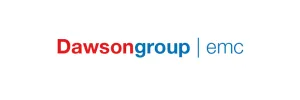Our Blog
Our treasure trove of resources, tips and tricks

Posted on 16 May 2022 by Ceris Burns
The war on truth
Fake news isn’t a recent phenomenon, but it’s being brought into focus again during the war in Ukraine, for example with old images and videos depicted as current.
With a constant stream of information coming from all over the world, responsible media outlets now have dedicated fact checking teams, such as the BBC’s disinformation team, who check and verify content. In the United States, Factcheck.org monitors the factual accuracy of what is said by major U.S. political players in the form of TV ads, debates, speeches, interviews and news releases.
Increased use of social media means misinformation can quickly and easily go viral. Concern about this issue, including the role it may have in swaying voters, has led sites like Facebook to outline plans to tackle it.
 So how can we separate fact from fiction? Here are five top tips:
So how can we separate fact from fiction? Here are five top tips:
1. Consider the source
Can you verify who the author is, and are they a trusted source? Does the website address look real and not something unusual? Check the ‘about us’ section for more background. If you can’t find information easily, it could be a hoax site. Watch out for mismatched fonts and poorly written text, which could be a sign it’s not high-quality, carefully checked information.
2. Is it stretching the boundaries of belief?
Does the story sound plausible and is it backed up by evidence? Read beyond the headline and check every fact individually, as some points may be true, whilst others are false. Has the story been reported anywhere else?
3. Check the date and time
It’s now easier to edit photos and create fake websites and stories that look realistic. The best way to figure out if an image or video is real or not is to look for clues. Consider factors like the weather, clothing, what can be seen in the background, the languages people are speaking, and so on. The timing of the posts or email might be odd, and content with an urgent call to action can be deliberately designed to make you rush into a decision.
4. Pause before you share or reply
The number one thing you can do to minimise misinformation is simply to stop and think. Some details might be accurate, but you could be doing more harm than good by forwarding fake news or replying without checking the authenticity first. If you’re sharing information, share responsibly.
5. Be aware of personal bias
Are you trusting something because you know it’s true, or just because you agree with the view being expressed? Our own beliefs can reinforce whether we are likely to concur with it or share the opinion with others. Equally, sometimes a genuine story is called ‘fake news’ as a catch-all term to discredit the information, if we disagree with it.
Authenticity matters
Trust is a vital component in any relationship and is built by providing open, honest and ethical information. We are experts at increasing the credibility of organisations within their given industry and amongst their key target audiences. This is achieved through a variety of means, including thought leadership pieces, speaker and networking opportunities and increasing an organisation’s online and social profile. Our role is also to ensure that an announcement has genuine news value, based on accurate facts, or that opinion would make a feature article of interest to the publication’s audience.
Communication has a powerful impact on your reputation. If you’d like support building strong relationships with stakeholders, based on trust and authenticity, then please get in touch.
Categories
- Branding
- Crisis Management
- Digital PR
- Environmental PR
- General News
- Guest Blogs
- International Insight
- Our Blog
- SEO Updates
- Social Media
- Uncategorised
Experts in Public Relations Services & Communications Management
Our ServicesGenuine industry specialists in cleaning and hygiene, environmental and recycling, and facilities management
Our Sectors












